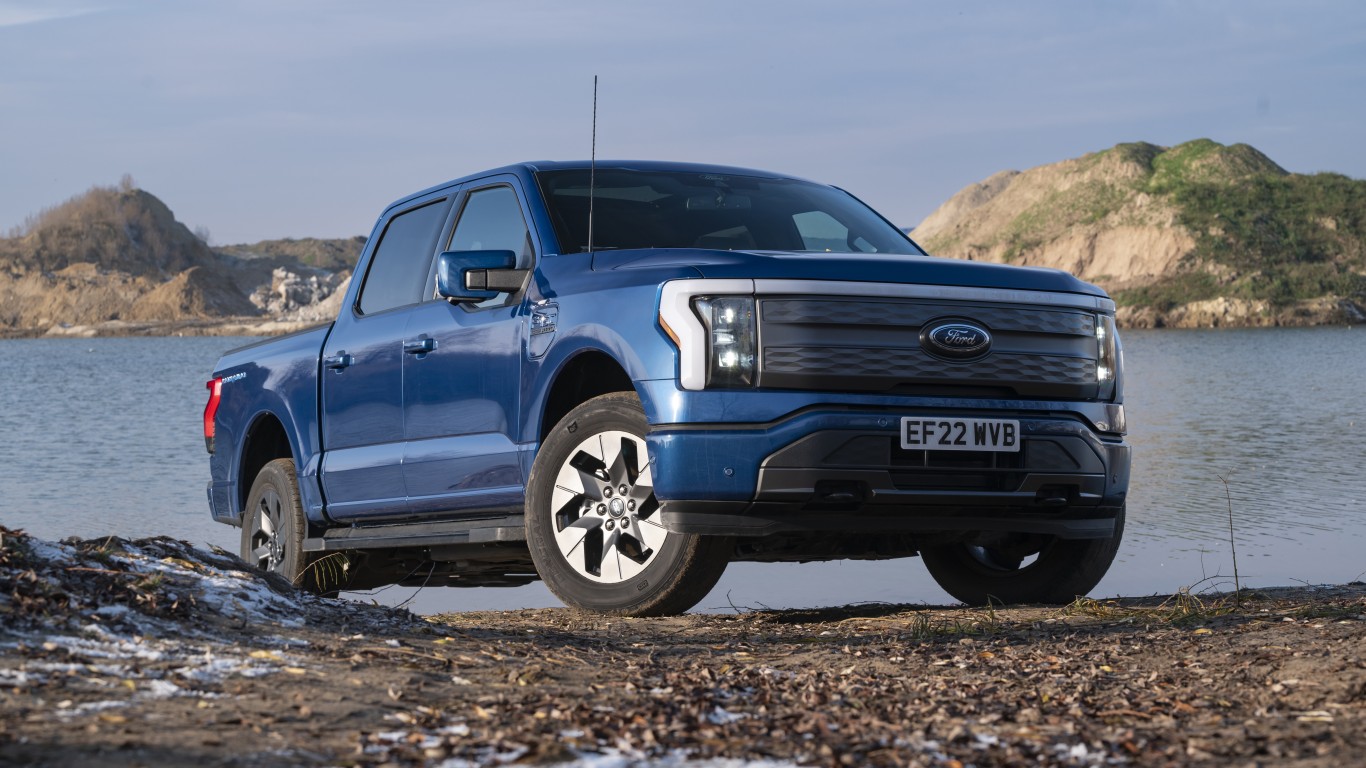
The recent report that a China-based buyer made an offer for Fiat Chrysler Automobiles N.V. (NYSE: FCAU) got us thinking about whether there might be a buyer somewhere interested in Ford Motor Co. (NYSE: F).
Why Ford? Well, its market cap of around $43 billion is more than double the $20 billion at Fiat Chrysler, or FCA), but nearly $10 billion lower than at General Motors Co. (NYSE: GM). While FCA may be the most enticing buyout target, Ford would have to be second.
And then there’s Ford’s recent share price performance. Last year the stock price fell by about 8%, return on equity dropped 43% and net income fell by well over a third. That performance earned the company’s executives a 19% pay raise.
Among those execs is executive Chairman William Clay Ford Jr., the grandson of founder Henry Ford and the company’s chief executive officer between October 2001 and September 2006. The Ford family owns 40% of the voting power of the company, and Bill Ford by himself owns 17.7%. During Ford’s tenure as CEO, the company’s stock dropped by about 53%, from $17 a share to around $8.
Alan Mulally, who replaced Ford in 2006, presided over a 116% share price gain, until he retired in June of 2014. Between 2001 and 2014, Ford stock essentially traded sideways. Mulally was replaced by Mark Fields, under whose leadership Ford stock fell 35%, until he was replaced earlier this summer by Jim Hackett.
Is Ford now a viable candidate for a takeover and, if so, by whom? The first hurdle to overcome would be the Ford family’s voting power. Bill Ford is highly unlikely to go for a sale, but stranger things have happened.
Assuming that hurdle can be cleared, where might a buyer come from? The only U.S. carmakers left, not counting FCA, are GM and Tesla Inc. (NASDAQ: TSLA). Tesla’s market cap totals more than $60 billion, but the company is currently more a technology play than a mass-market automaker. The Model 3 may change that, but that day is well off in the future.
And there’s absolutely no reason for GM to acquire Ford. GM has mapped out a strategy under CEO Mary Barra and, with some hiccups, that strategy has been working. Taking on a massive debt makes little sense for GM.
What about the big European makers: Volkswagen, Daimler, BMW, Renault and Peugeot. VW is not going to be buying anything for a while yet, Daimler has gotten itself into a bind over diesel emissions, BMW may not be big enough (market cap of around $53 billion, roughly equal to GM) and neither are Renault (about $22.4 billion) or Peugeot (about $16.4 billion).
Japan’s Toyota has a market cap about four times Ford’s, but the company has struggled as well the past couple of years, with shares down more than 20% since a recent high of around $143 in March of 2015.
That leaves China, where the country’s largest automaker, SAIC, has a market cap of around $44 billion, roughly equal to Ford’s. SAIC is also a partner in a joint venture with GM that has been performing well and is, therefore, unlikely to want to change. It is difficult to see any of the country’s biggest companies (mostly banks) looking to buy an automobile maker.
Now it comes down to tech firms like Alphabet, Apple and Microsoft, two of which are working on self-driving and other advanced automobile technologies, and all of which have the cash to buy Ford. Microsoft Corp. (NASDAQ: MSFT), the only one of the three that does not have an in-house team working on self-driving cars, recently struck a deal with China’s Baidu to be the cloud services provider for Baidu’s self-driving projects.
Microsoft, especially, is adopting the strategy that Bill Gates and Paul Allen followed when they founded the company: build good software and license it to hardware (in this case, auto) makers. And all three of these tech firms would rather be arms dealers with no allegiance rather than to get into the automobile business.
One final possibility that comes to mind is General Electric Co. (NYSE: GE). GE’s cash pile is around $130 billion, including long-term securities. GE, like Ford, is mired in a share price slump that is only getting worse. Also like Ford, GE has a brand-new CEO, John Flannery, who just invested $2.7 million of his own money to purchase GE stock. Under departed CEO Jeff Immelt, the company shed its GE Capital business and returned to its roots as an industrial conglomerate.
Adding a car company that is struggling to that conglomerate may not be the best way for GE to turn around its business, and there are plenty of investors who would gladly jump ship if GE made an offer for Ford. Warren Buffett sold off all his GE stock for a lot less provocation.
Want to Retire Early? Start Here (Sponsor)
Want retirement to come a few years earlier than you’d planned? Or are you ready to retire now, but want an extra set of eyes on your finances?
Now you can speak with up to 3 financial experts in your area for FREE. By simply clicking here you can begin to match with financial professionals who can help you build your plan to retire early. And the best part? The first conversation with them is free.
Click here to match with up to 3 financial pros who would be excited to help you make financial decisions.
Thank you for reading! Have some feedback for us?
Contact the 24/7 Wall St. editorial team.
 24/7 Wall St.
24/7 Wall St.

